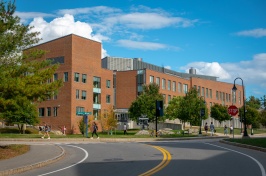UNH Survey Center: Economic and Budget Issues Most Important Problems; Lynch Still Popular
Submitted by emantz on Tue, 02/08/2011 - 12:00amDURHAM, N.H. - New Hampshire’s economy and balancing the state budget are the most important problems facing the state according to state residents. Gov. John Lynch remains popular among Granite Staters. These findings are based on the latest WMUR Granite State Poll, conducted by the University of New Hampshire Survey Center.
Five hundred twenty (520) randomly selected New Hampshire adults were interviewed by telephone between Jan. 27 and Feb. 6, 2011. The margin of sampling error for the survey is +/- 4.3 percent.
















































